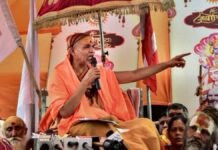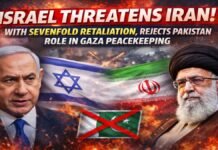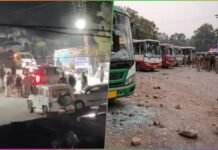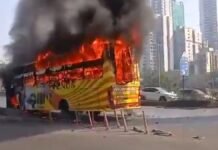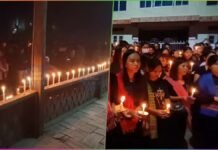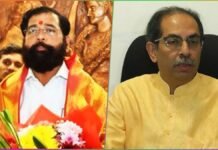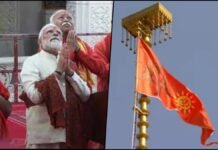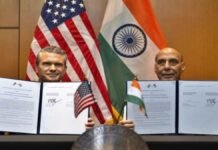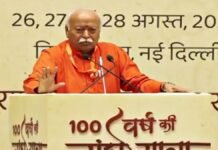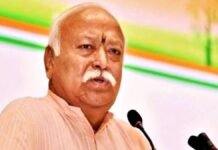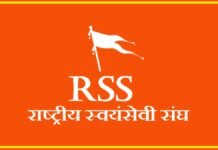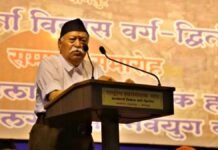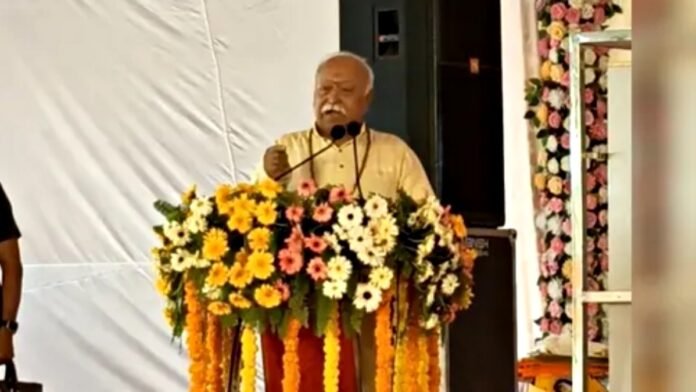
Key Points:
- RSS chief Mohan Bhagwat declares that Pakistan-Occupied Kashmir (PoK) must be reclaimed, calling it “a room in the house of India occupied by strangers”.
- Major protests rock Muzaffarabad, PoK, with 12 protesters killed, hundreds injured as locals clash with Pakistani army over economic hardship and resource plundering.
- Rajnath Singh previously hinted that PoK residents would soon identify with India, reflecting growing unrest in the region.
- Indian Ministry of External Affairs blames Pakistan’s oppressive policies and resource exploitation for recent turmoil and reiterates India’s claim over PoK.
- Pakistan rushed to sign agreement with protest leaders, promising compensation and development relief, but skepticism remains over implementation.
Satna: RSS Sarsanghachalak Mohan Bhagwat, addressing Sindhi community members at Satna in Madhya Pradesh, emphasized the idea of a united India by describing PoK as a part of India’s house “from which our table, chair, and clothes have been taken away by strangers.” To loud applause, Bhagwat asserted: “Tomorrow, I have to take it back.” He reminded the audience that many Sindhis came to India after 1947, choosing undivided India over Pakistan, reinforcing a shared connection to the ancestral homeland.
Protests and Bloodshed: PoK in Turmoil
Bhagwat’s remarks come at a time of extreme volatility in Pakistan-occupied Kashmir. Over the past week, towns including Muzaffarabad, Rawalkot, and Dadyal have witnessed massive uprisings led by the United Awami Action Committee against rising electricity costs, food shortages, and what locals describe as the plundering of their natural resources. The Pakistani army responded forcefully: at least 12 protestors have been killed and more than 100 injured as clashes erupted, with police and army personnel firing live rounds and tear gas into crowds.
Economic Grievances and Political Demands
The unrest was kindled by demands for reduced power bills, food security, and an end to resource extraction from PoK forests and rivers, with the benefits largely flowing to Pakistan while locals reap no gains. The protestors also demanded the elimination of special refugee-designated assembly seats reserved for those settled in Pakistan, seeing them as symbols of disenfranchisement. Videos circulating online show crowds chanting “Kashmir is ours, we will decide its future,” even as internet services were cut and transportation brought to a standstill in Muzaffarabad during a five-day total strike.
India’s Stand and Diplomatic Message
India’s Ministry of External Affairs responded sharply, with spokesperson Randhir Jaiswal asserting that Pakistan’s “repressive approach and plundering of resources are the root of these massive protests.” He reiterated India’s long-held stance that “PoK is an integral part of our country and always will be,” while accusing Islamabad of decades-long deceit on the real situation in Kashmir.
Pakistan’s Concessions and Continuing Doubts
Under intense pressure, the government in Islamabad dispatched a high-level committee to negotiate with protest leaders. On Saturday, a 25-point agreement was signed, promising compensations for victims, heavy investment in local infrastructure (including 10 billion rupees for electricity upgrades and an airport in Mirzapur), as well as some tax relief. However, activists and experts are skeptical about Pakistan’s will or ability to deliver on these commitments, warning that unrest may flare again.
Strategic Context: “Operation Sindoor” and Statements from Delhi
Multiple Indian leaders, including Defense Minister Rajnath Singh, have recently remarked that PoK residents increasingly identify with India, suggesting that “the time to settle old scores” may be approaching. Singh has reiterated that India’s economy, global stature, and defense manufacturing are rising, while Pakistan struggles with crises.
The evolving situation has experts predicting a possible historic shift in the valley’s alignment, with current unrest viewed as a “major signal” for India’s strategy regarding PoK.




